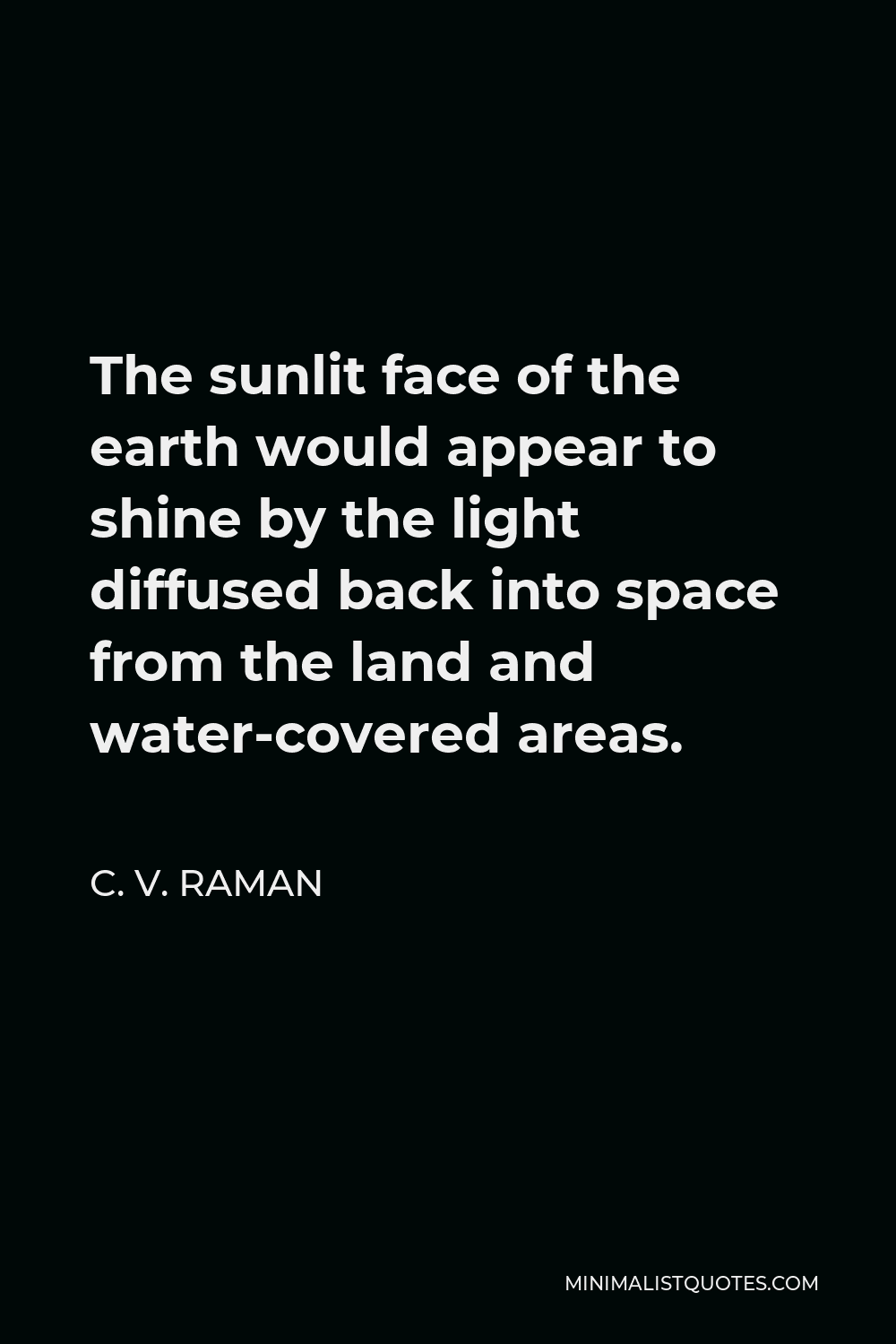Towards the end of February 1928, I took the decision of using brilliant monochromatic illumination obtained by the aid of the commercially available mercury arcs sealed in quartz tubes.
C. V. RAMANThe sunlit face of the earth would appear to shine by the light diffused back into space from the land and water-covered areas.
More C. V. Raman Quotes
-





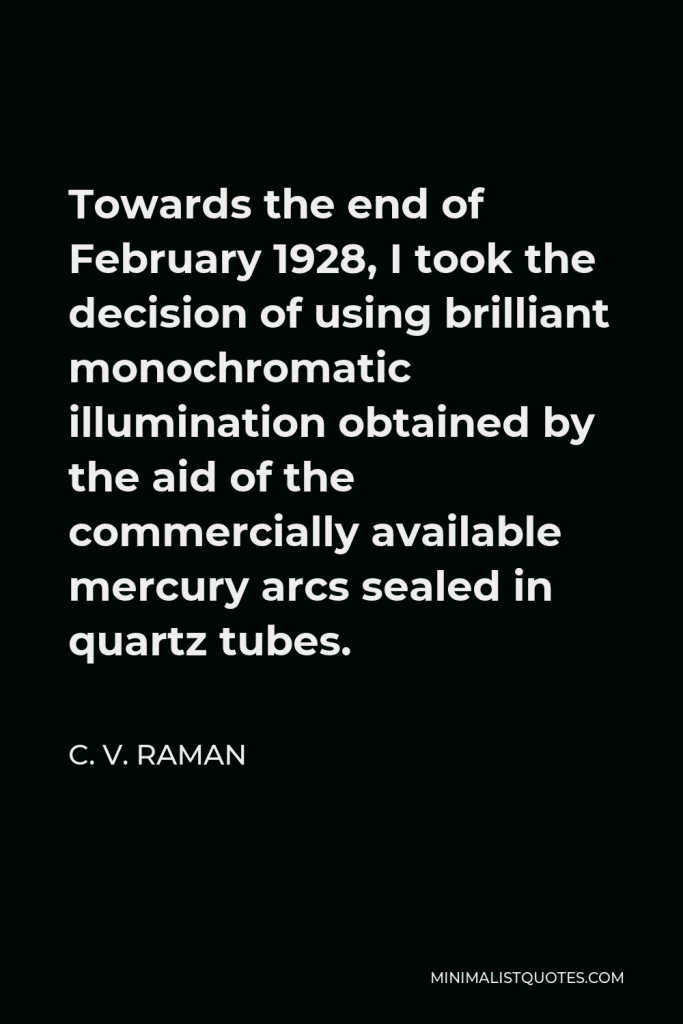

-





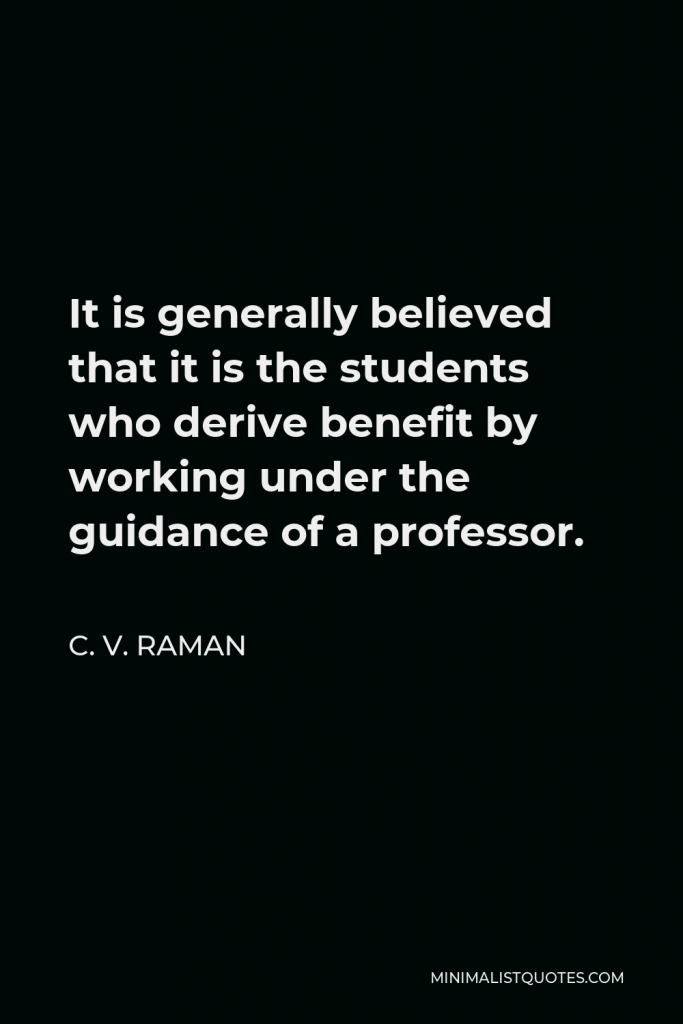

It is generally believed that it is the students who derive benefit by working under the guidance of a professor.
C. V. RAMAN -





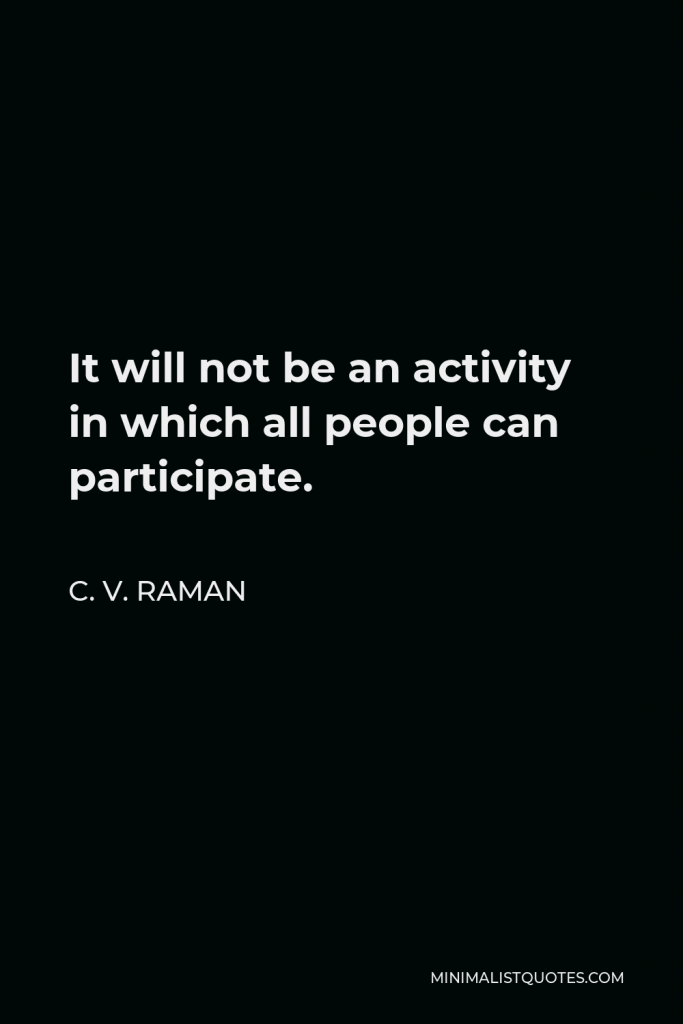

It will not be an activity in which all people can participate.
C. V. RAMAN -





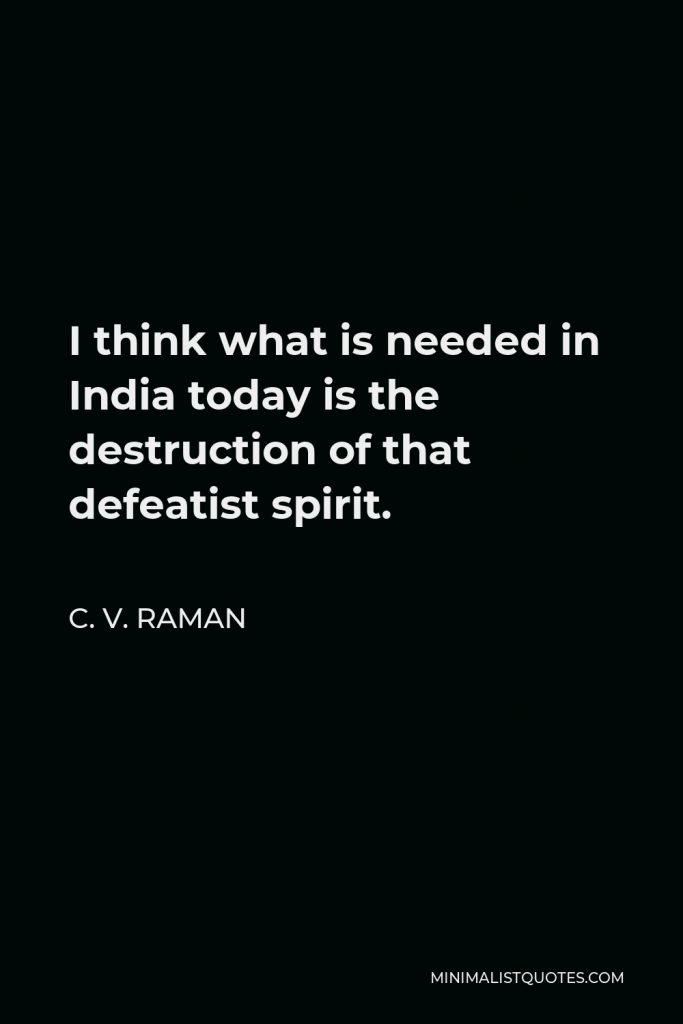

I think what is needed in India today is the destruction of that defeatist spirit.
C. V. RAMAN -





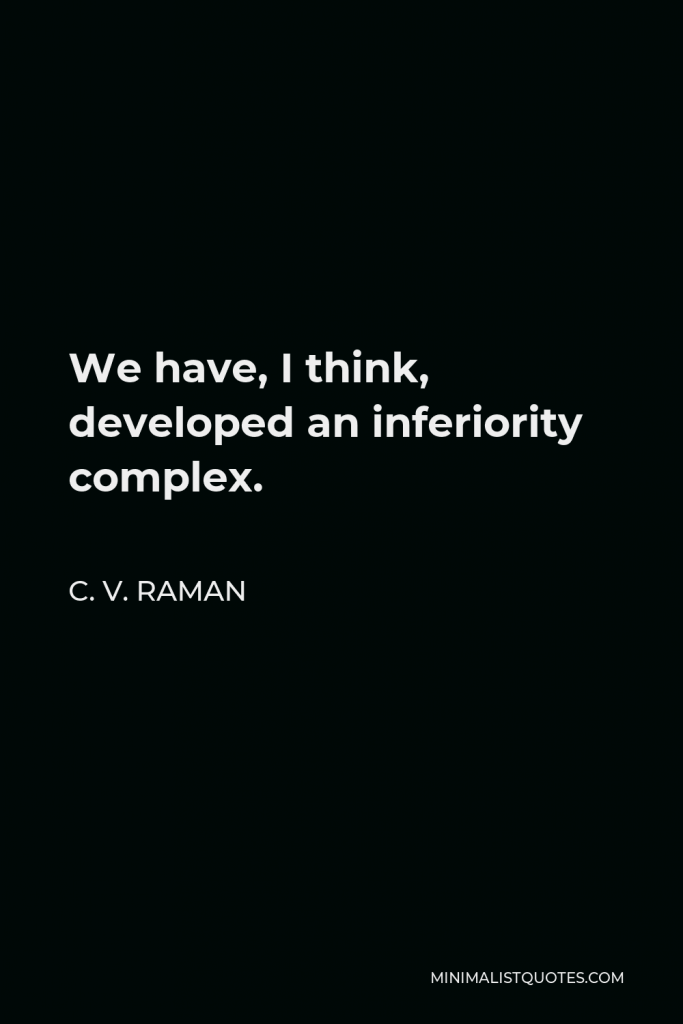

We have, I think, developed an inferiority complex.
C. V. RAMAN -





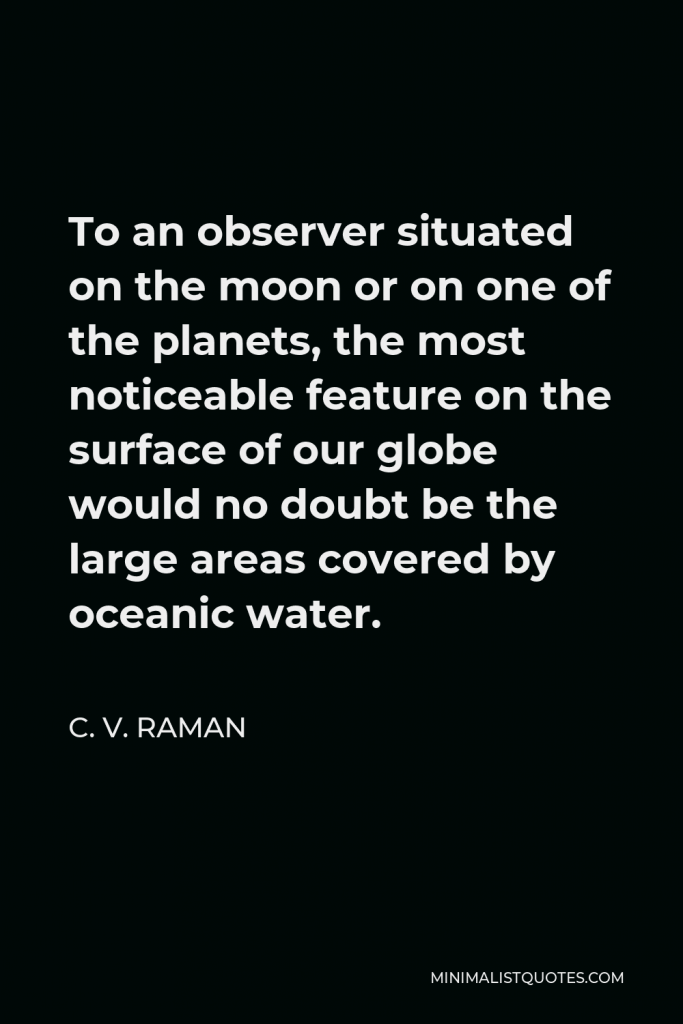

To an observer situated on the moon or on one of the planets, the most noticeable feature on the surface of our globe would no doubt be the large areas covered by oceanic water.
C. V. RAMAN -





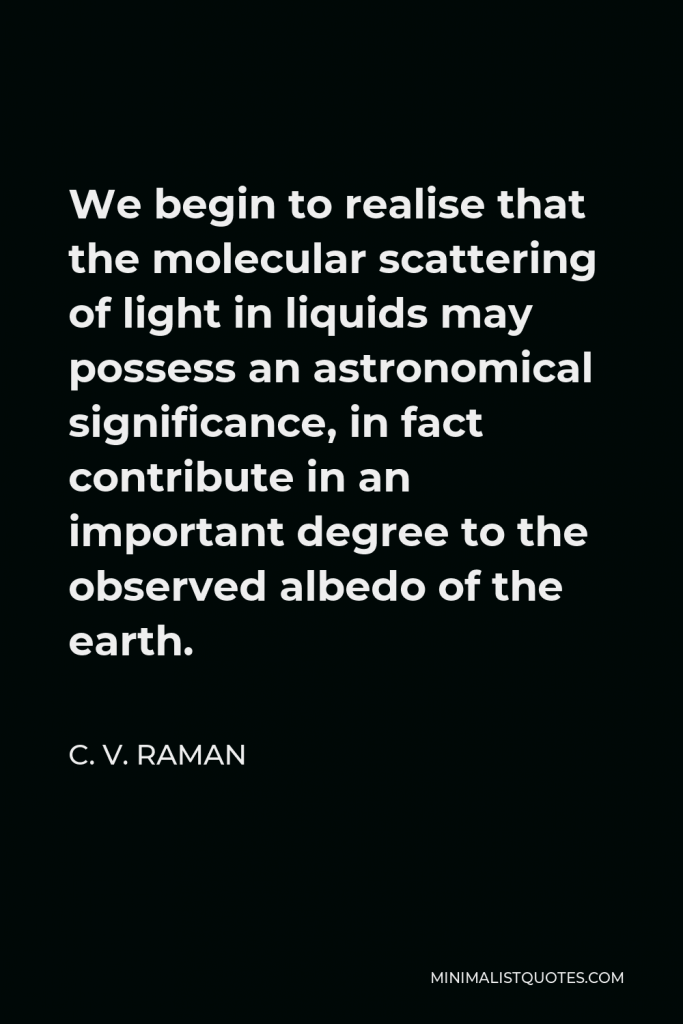

We begin to realise that the molecular scattering of light in liquids may possess an astronomical significance, in fact contribute in an important degree to the observed albedo of the earth.
C. V. RAMAN -





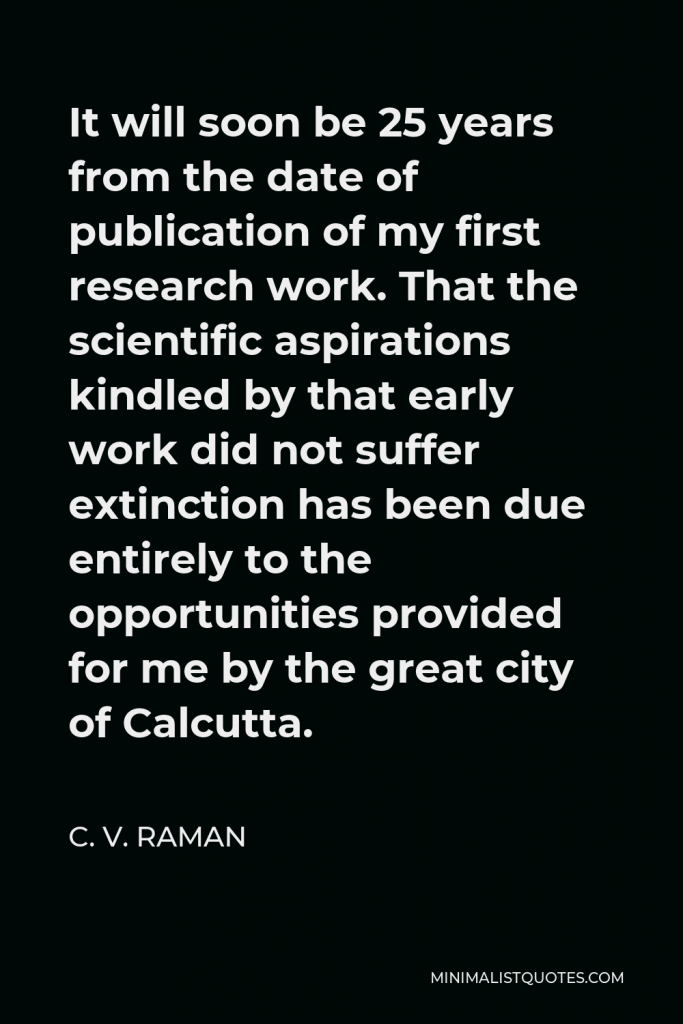

It will soon be 25 years from the date of publication of my first research work. That the scientific aspirations kindled by that early work did not suffer extinction has been due entirely to the opportunities provided for me by the great city of Calcutta.
C. V. RAMAN -





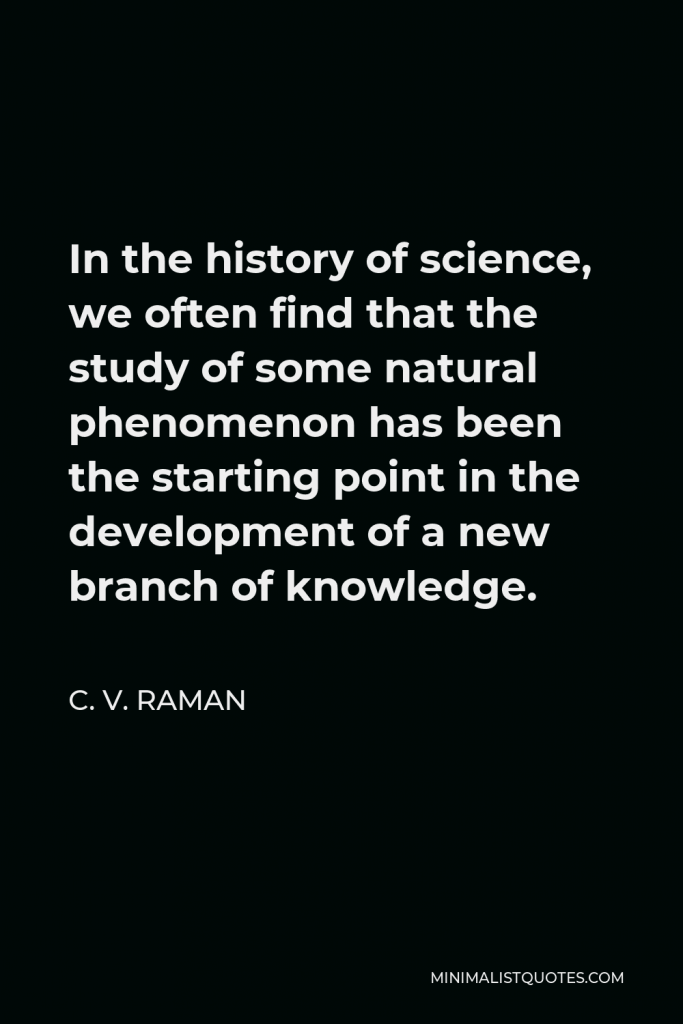

In the history of science, we often find that the study of some natural phenomenon has been the starting point in the development of a new branch of knowledge.
C. V. RAMAN -





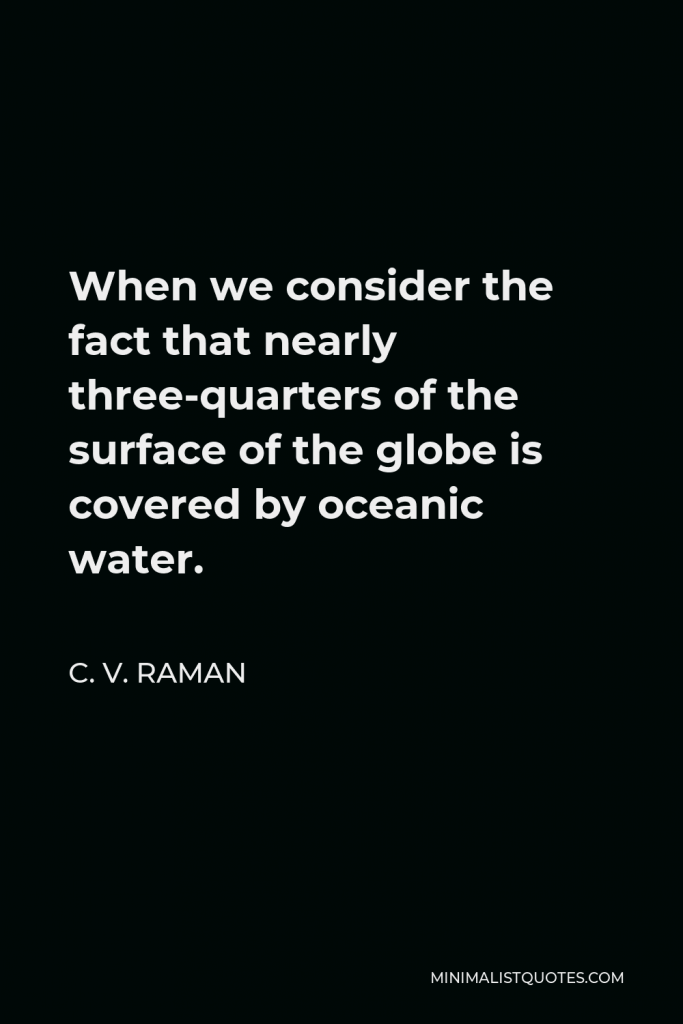

When we consider the fact that nearly three-quarters of the surface of the globe is covered by oceanic water.
C. V. RAMAN -





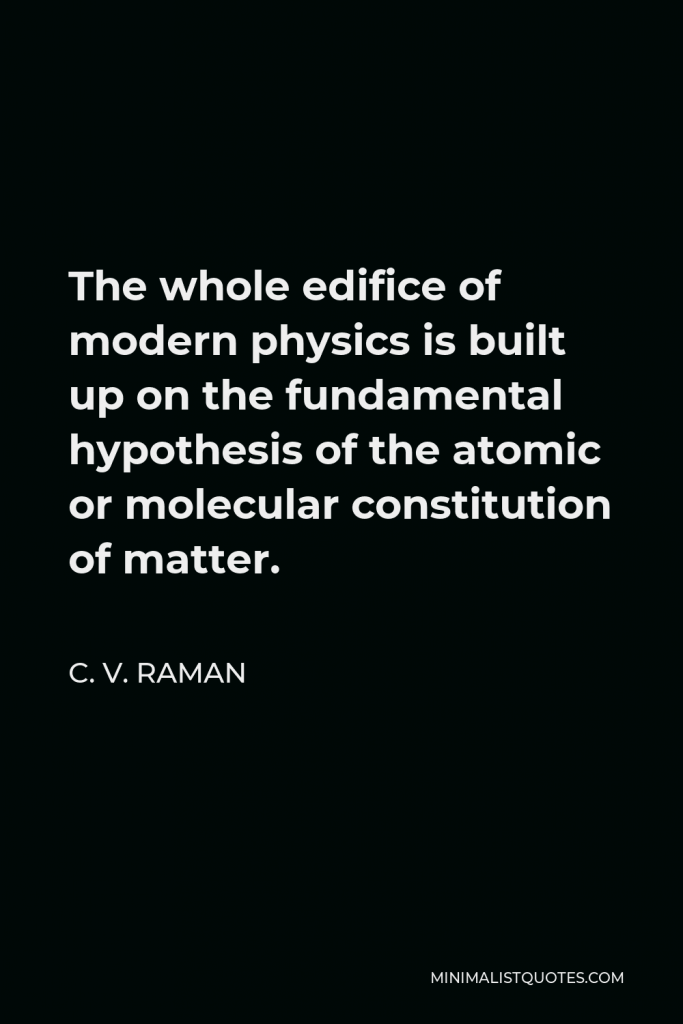

The whole edifice of modern physics is built up on the fundamental hypothesis of the atomic or molecular constitution of matter.
C. V. RAMAN -







In the first English class I attended, Prof. E. H. Elliot, addressing me, asked if I really belonged to the Junior B. A. class, and I had to answer him in the affirmative. He then proceeded to inquire how old I was.
C. V. RAMAN -





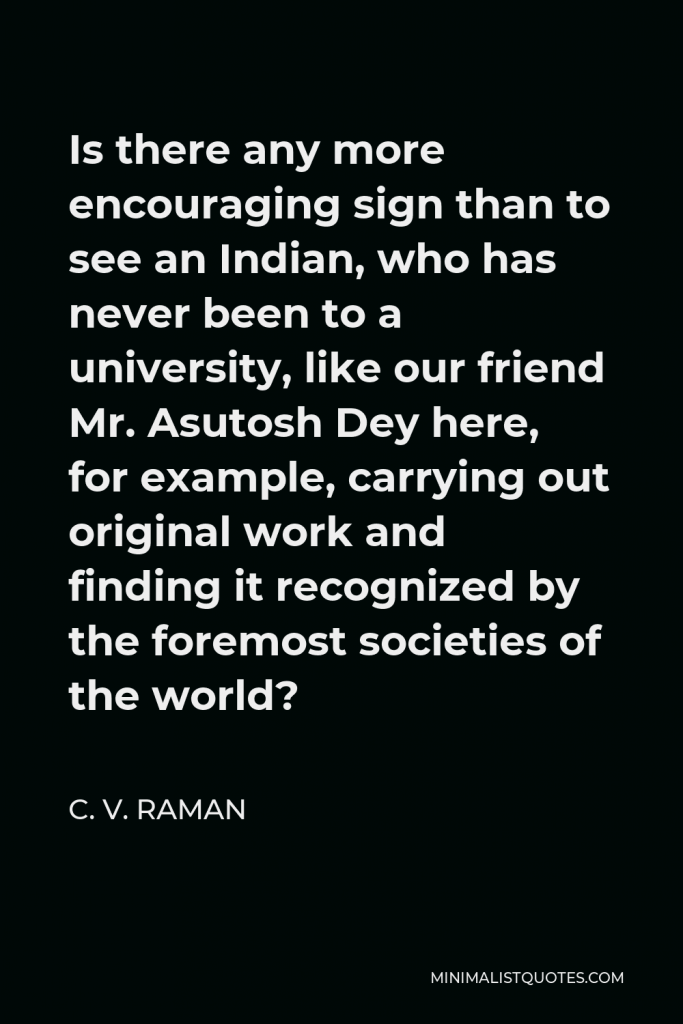

Is there any more encouraging sign than to see an Indian, who has never been to a university, like our friend Mr. Asutosh Dey here, for example, carrying out original work and finding it recognized by the foremost societies of the world?
C. V. RAMAN -





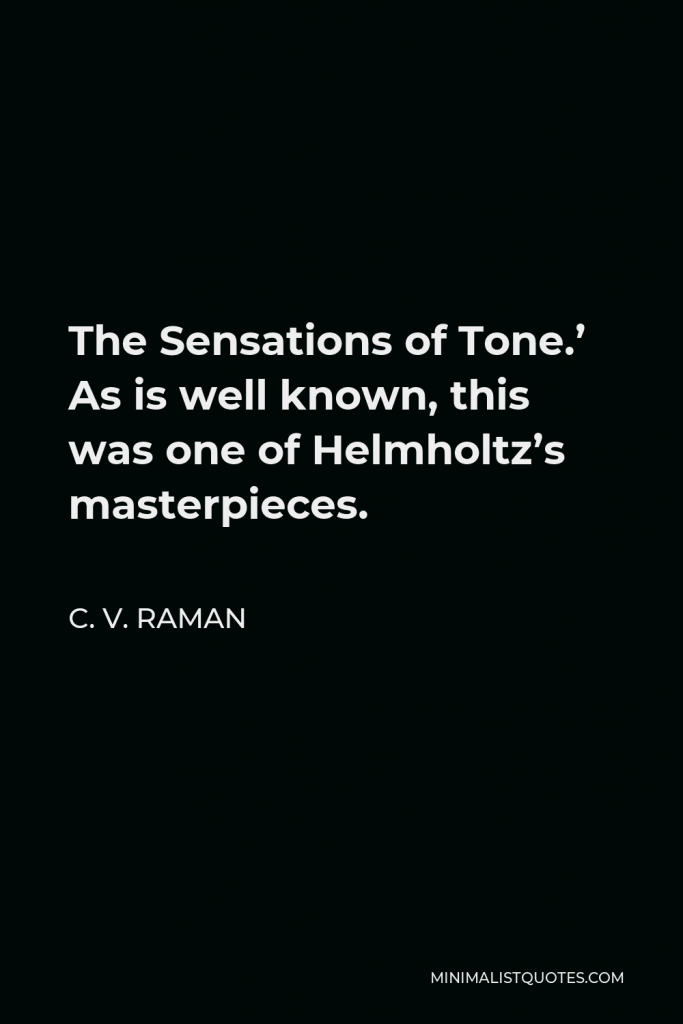

The Sensations of Tone.’ As is well known, this was one of Helmholtz’s masterpieces.
C. V. RAMAN -





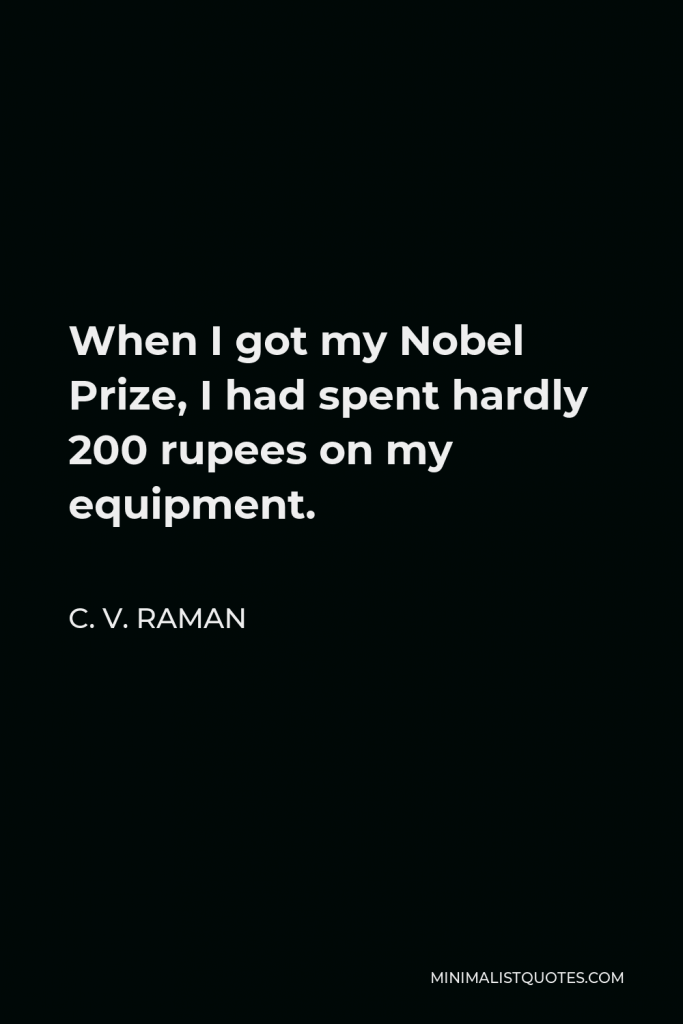

When I got my Nobel Prize, I had spent hardly 200 rupees on my equipment.
C. V. RAMAN -





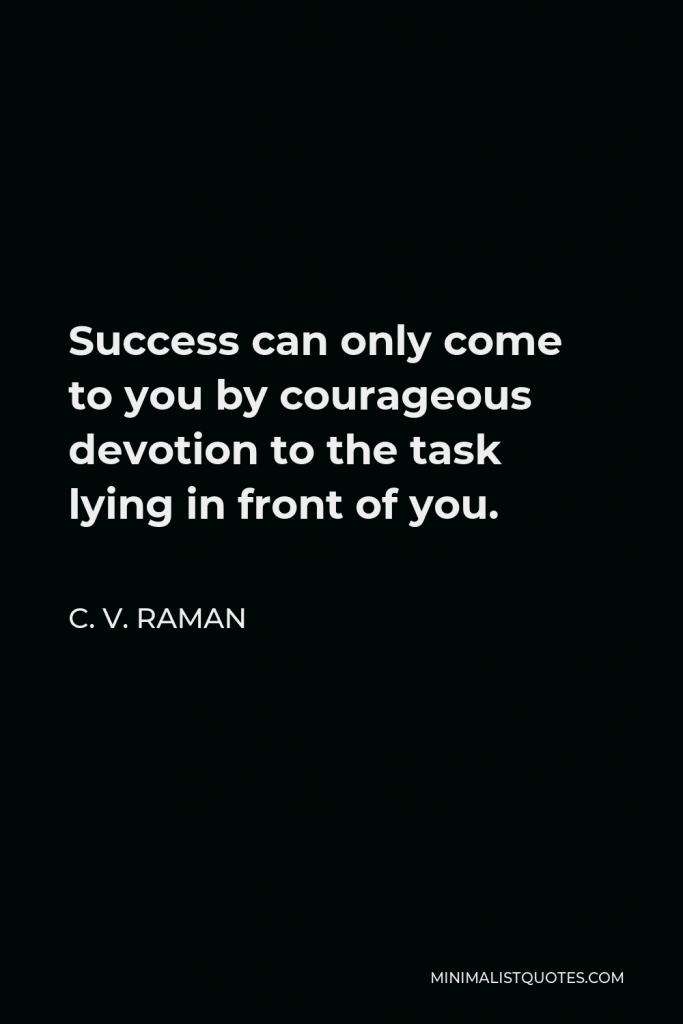

Success can only come to you by courageous devotion to the task lying in front of you.
C. V. RAMAN
